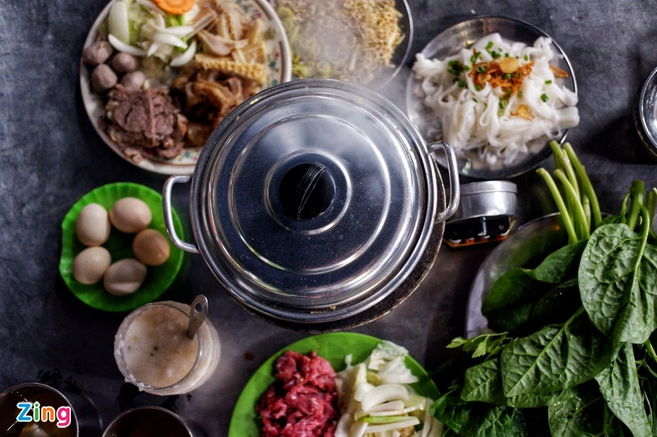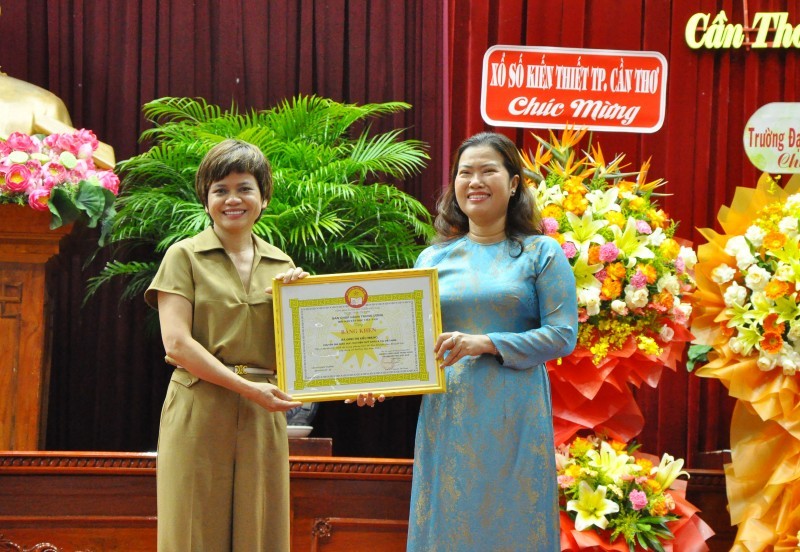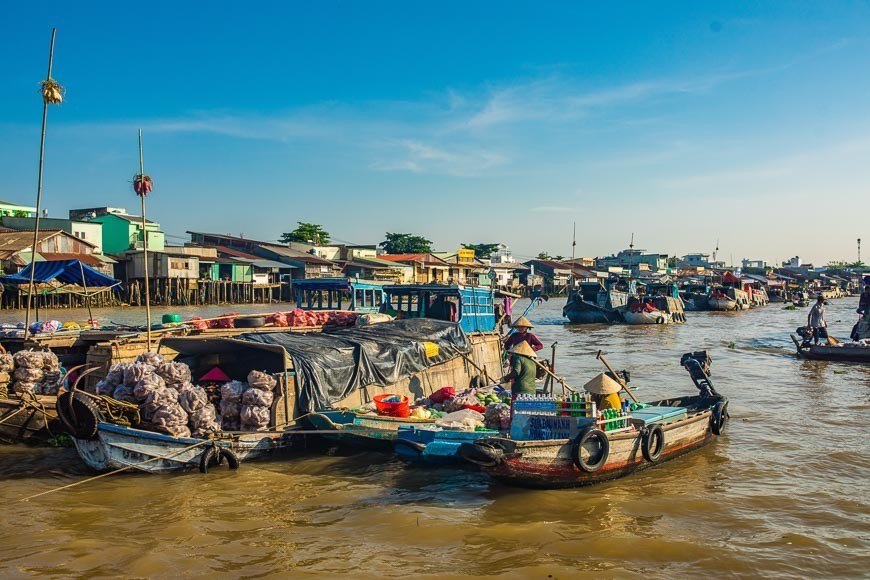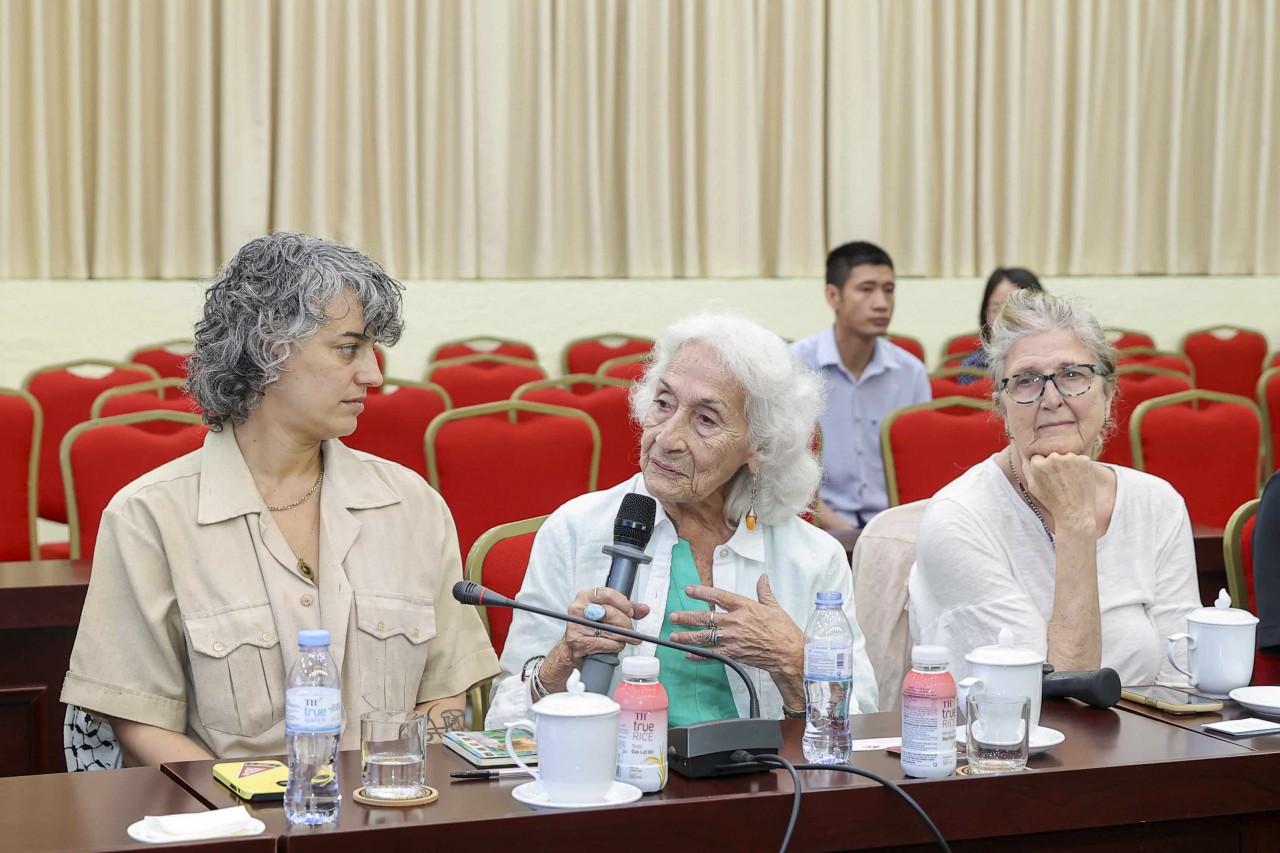Admiring two-century-old communal house in Mekong Delta
Binh Thuy communal house or Long Tuyen temple was originally constructed from wood and leaves. With two restorations, the latest in 1909, it is one of the most aged communal houses in Vietnam's southern region.
Built in the 19th century, the Communal House was named Bon Canh Thanh Hoang on November 9th 1893 by King Tu Duc.
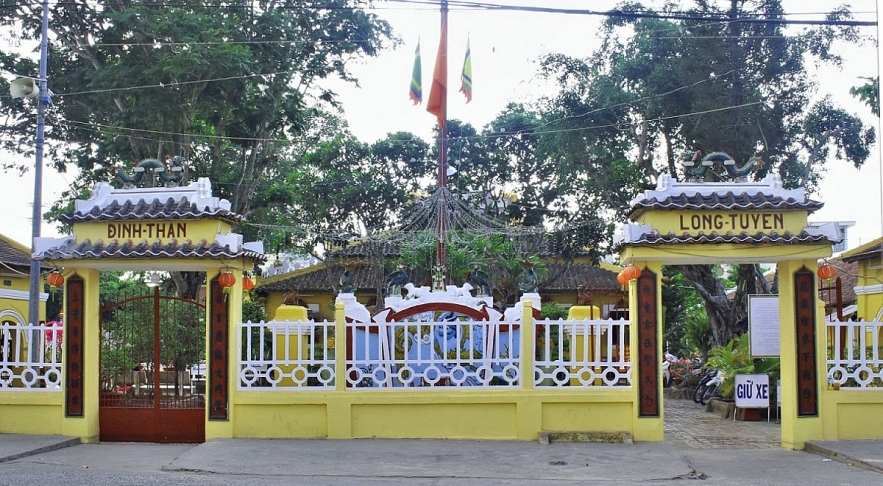 |
| Binh Thuy communal house or Long Tuyen temple was originally constructed from wood and leaves. Photo: Vn Express. |
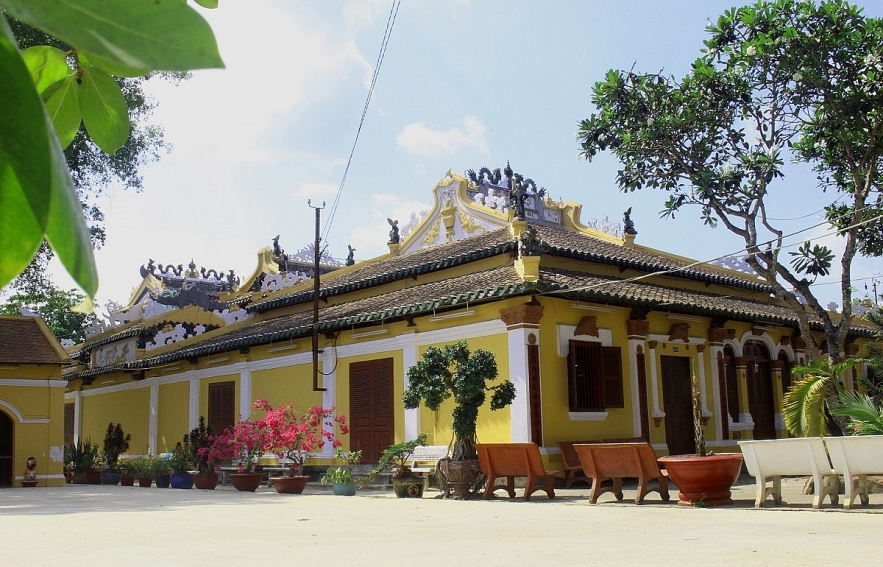 |
| Binh Thuy covers an area of more than 4,000 square meters in Binh Thuy Ward, Binh Thuy District. Photo: Vn Express. |
Later the Communal House was dedicated to national heroes including Dinh Cong Trang, Nguyen Trung Truc, Bui Huu Nghia and Vo Huy Tap. It was completely renovated in 1910. In 1989, Binh Thuy was recognized as a National Historical and Cultural Heritage site by the culture ministry, Vn Express reported.
In front of the communal house is an opera house used for performances of Vietnamese classical drama. Although it was built at the beginning of the 20th century, its architecture has many traditional characteristics with carved and engraved wooden boards.
The house is located in Binh Thuy District, north of central Can Tho. Different from other communal houses built in the northern region, the communal house front and back buildings are square.
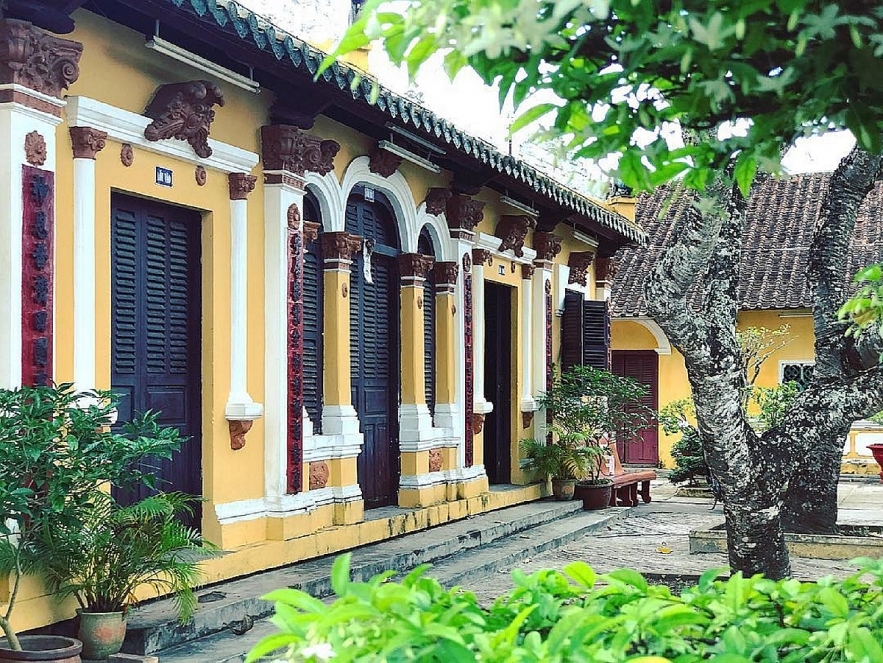 |
| Built in the early 20th century, design was influenced by many popular architectural styles of the time. The front door of the house has an arch shape with patterns on its pillars stimulating a French aesthetic. Photo: Vn Express. |
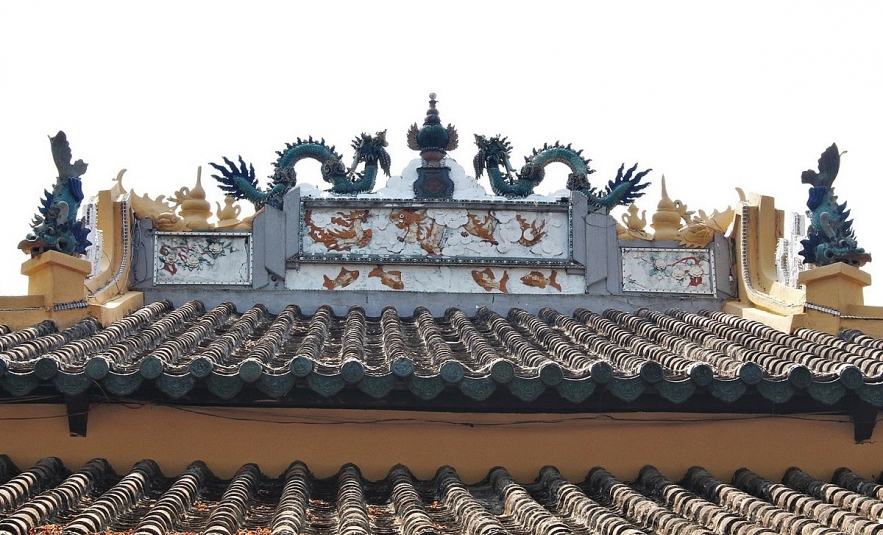 |
| The roof is more similar to the architecture of Chinese pagodas or temples. Photo: Vn Express. |
Binh Thuy covers an area of more than 4,000 square meters in Binh Thuy Ward, Binh Thuy District. This house is located on prime land in line with the ancient Feng Shui concept: the great land between two rivers, facing Binh Thuy River to the east, Hau River to the north, Le Hong Phong Street to the south, and a residential square to the west.
In addition, there are six rows of columns that are placed on each side of the house. There are four small external shrines for the Agriculture, Tiger, Forest and Irrigation deities, Vietnam News reported.
If you are an architecture enthusiast, you will recognize that the communal house’s architecture is different from communal houses in the north. The front and the back buildings are square, and its side has six rows of columns, and all the columns’ bases are extra-wide, making these buildings more stable.
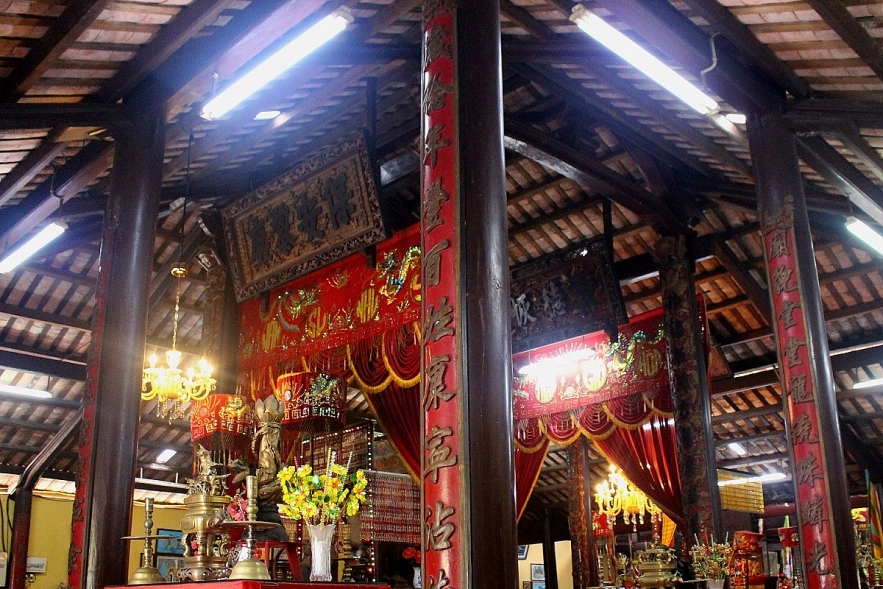 |
| The interior of the communal house is decorated with details that bring out its Vietnamese identity, including carvings, lacquered boards with scripts, and couplets. Every pair of pillars displays a couplet. The two pillars at the center are sophisticatedly carved with additional decorative patterns. Photo: Vn Express. |
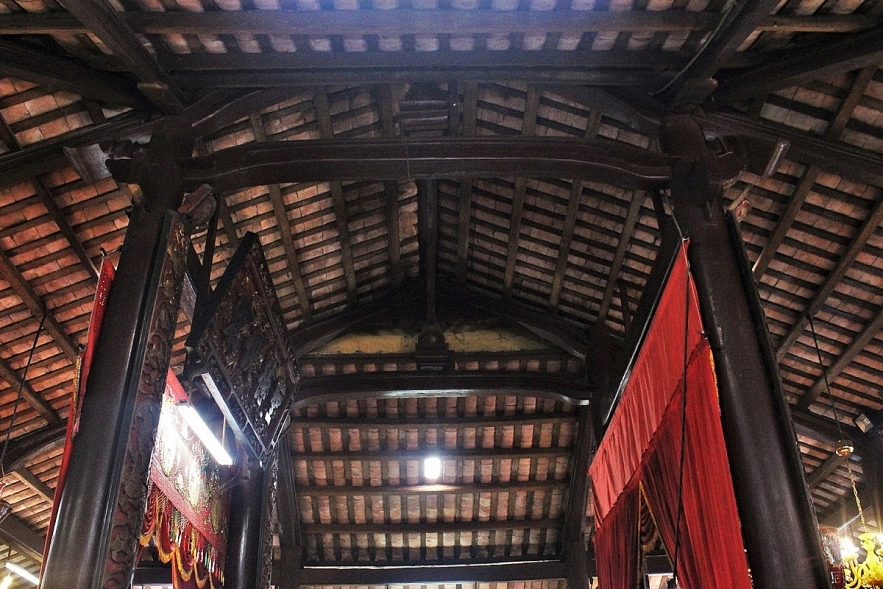 |
| The roof is designed in the ‘Tu Hai’ (Four Oceans) style often found in the old architecture of the southern region. Photo: Vn Express. |
The roofs of the two front buildings were built overlapping each other. The main temple at the rear has three roofs. The top of the roof is covered with statues of people, lions and fish, as reported by The Saigon Times.
In the front of the building, there are cement columns. Inside the ancestor-worshipping house, there are altars dedicated to worship the animal gods.
It is considered a valuable monument of art and architectural style in the newly-expanded south western area. Although it was built at the beginning of the 20th century, its architecture has many traditional characteristics with carved and engraved wooden boards.
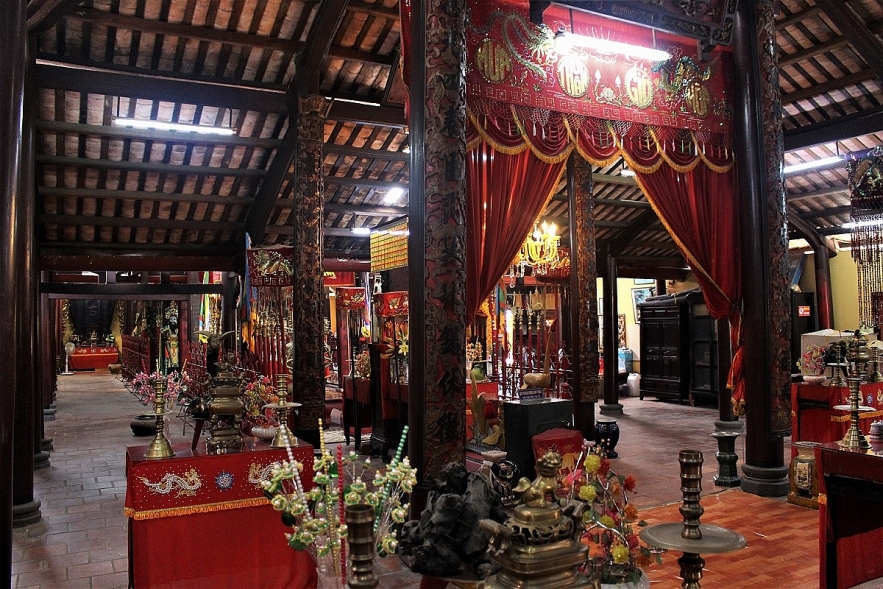 |
| The house lies on high ground. The front and back houses have six rows of pillars, five shrine rooms and two internal corridors. Photo: Vn Express. |
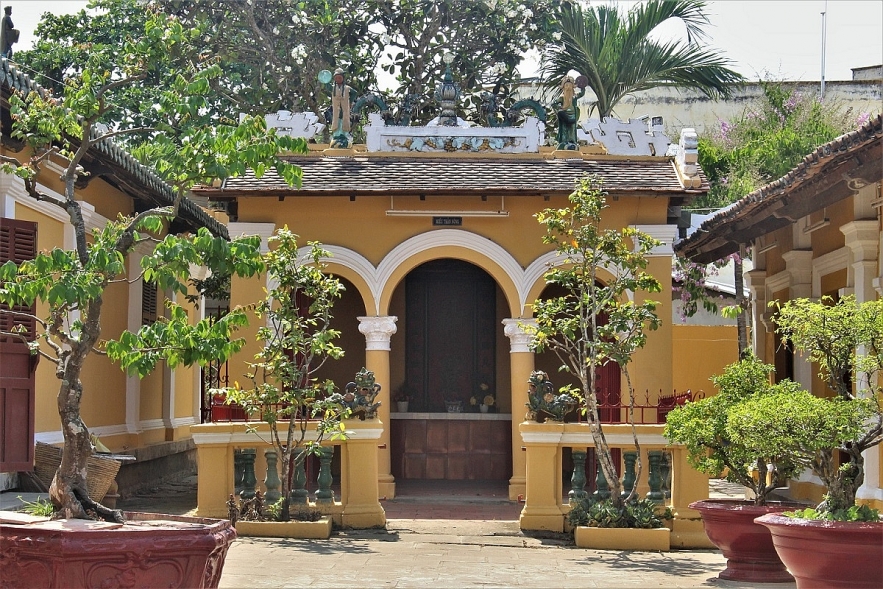 |
| There are four more small external shrines for the Agriculture, Tiger, Forest and Irrigation deities. Photo: Vn Express. |
Bas-reliefs, lacquered boards and paralleled sentences or royal costumes and old paintings is an interesting area for art lovers.
Another impressive thing is the attendance of ong tu (the guard) of the house. He is very old with white hair and slowcoach gait. He will accompany you around the house and show you where to take the best photographs.
Some giant trees in the spacious yard shading the house make it more ancient and peaceful.
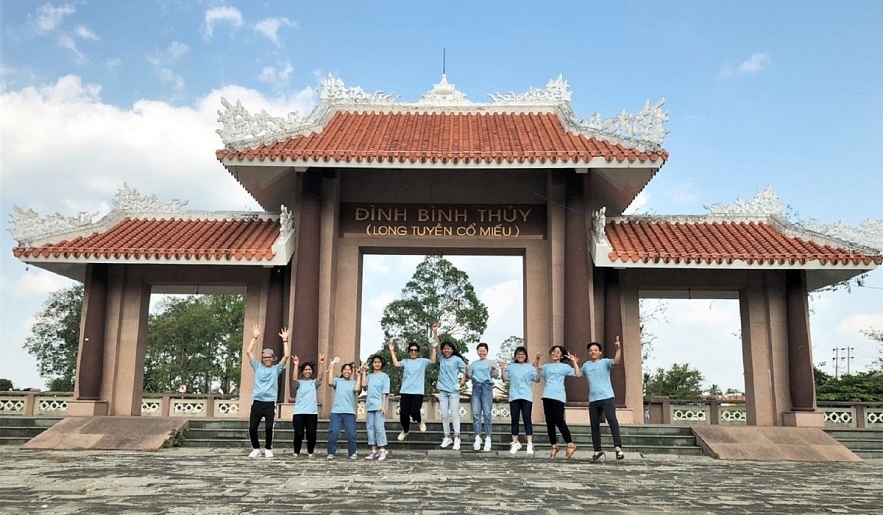 |
| Students in the Mekong Delta city of Can Tho often visit the communal house to learn about the city's culture, history, and beliefs. Photo: Vn Express. |
The house is also a venue for traditional ceremonies and festivals. Besides, students in the Mekong Delta city of Can Tho often visit the communal house to learn about the city's culture, history, and beliefs. During lunar April 12-15, the Ky Yen Binh Thuy festival typically attracts many visitors from all over the country. The festival was honored as a National Intangible Cultural Heritage in 2018.
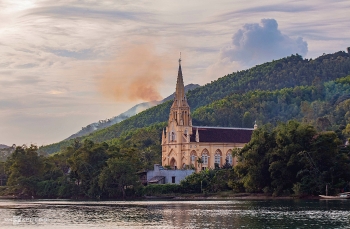 | Splendid churches add charm to Quang Binh Province Besides the name of 'Kingdom of Caves', Quang Binh Province also attracts many tourists by its rich Christian heritage, as evidenced by many splendid churches. |
 | Exploring enchanting Hue with unique destinations There are many interesting things to explore in Hue, the former capital of Vietnam from Truong Tien Bridge, Dong Ba Market, Phu Van Lau, Huong ... |
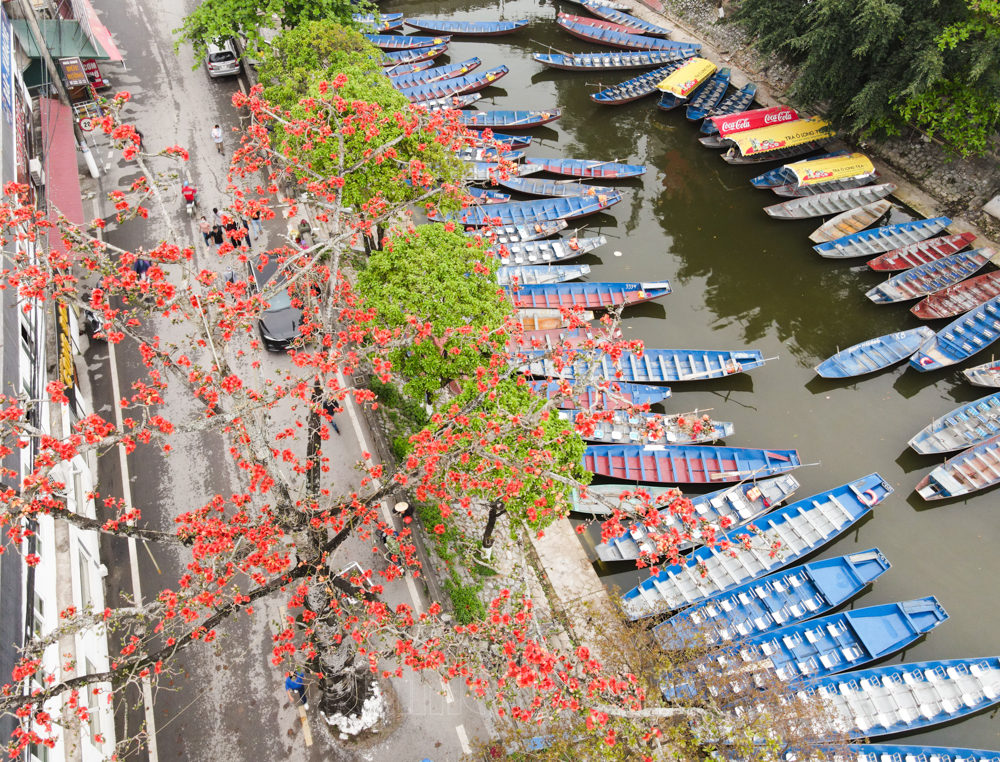 | In photos: Red silk cotton flowers adorn beauty of Huong (Perfume) Pagoda Between March and April every year, many corners at Huong (Perfume) Pagoda in My Duc District, Hanoi are embellished by blooming red silk cotton flowers. |
Recommended
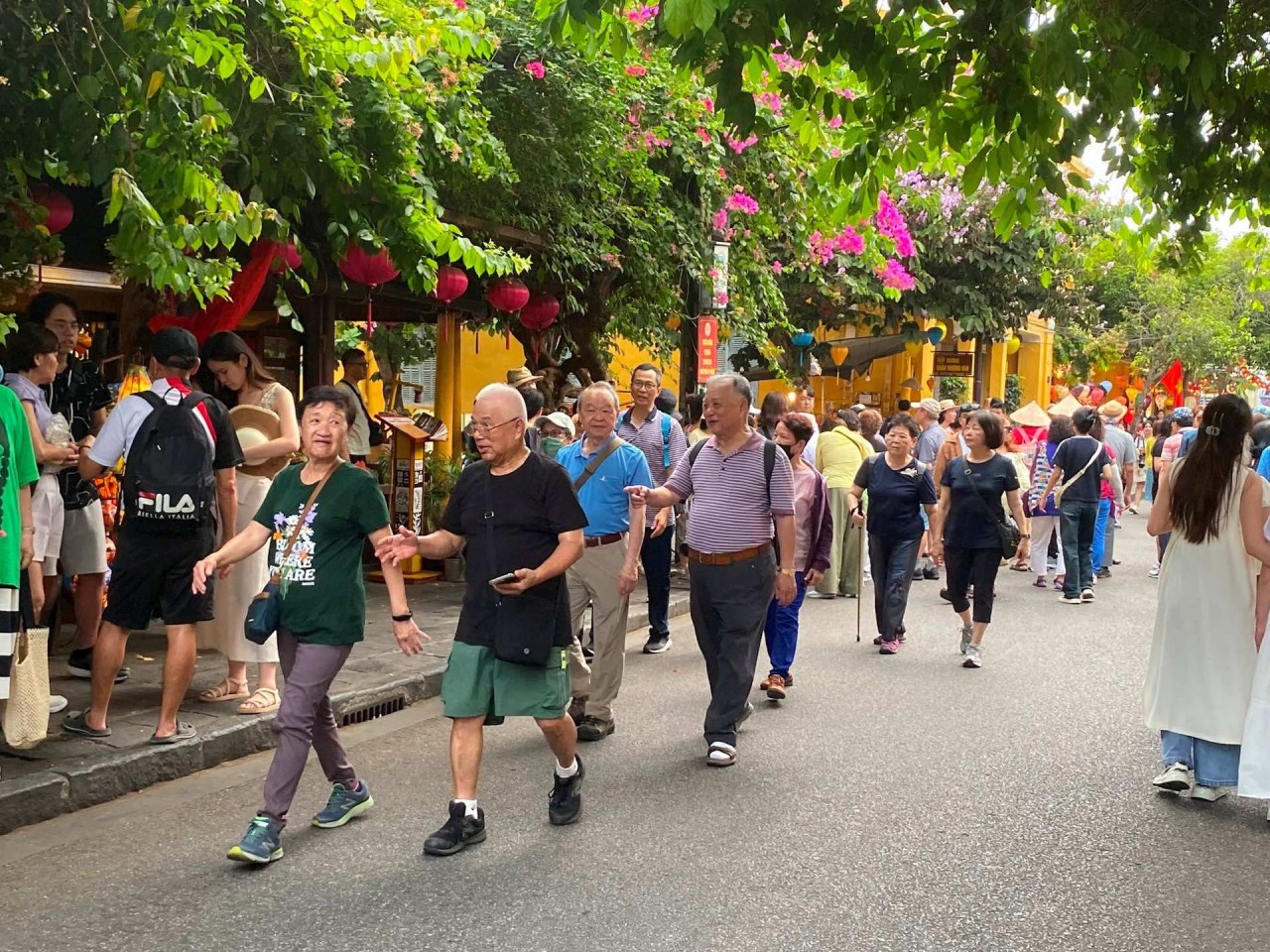 Travel
Travel
Strategies for Sustainable Growth of Vietnam’s Tourism from International Markets
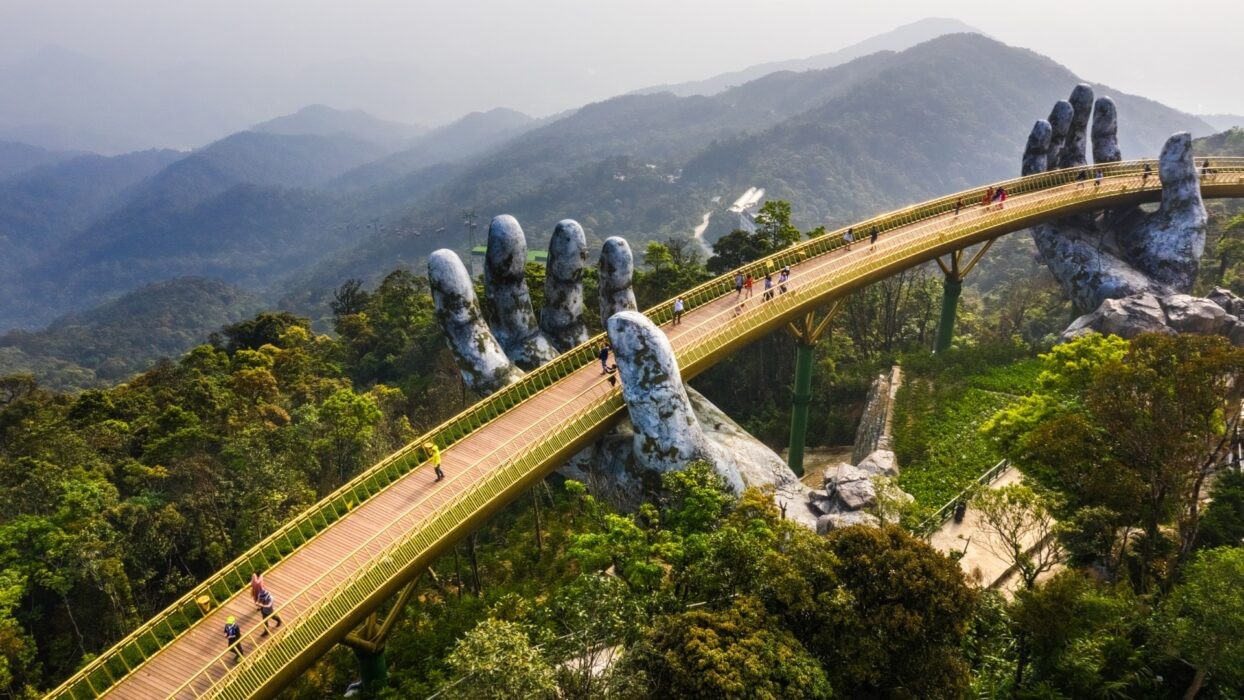 Travel
Travel
Vietnam Strengthens Its Presence On The Global Tourism Map
 Multimedia
Multimedia
Phong Nha-Ke Bang National Park Named Top Adventure Travel Site
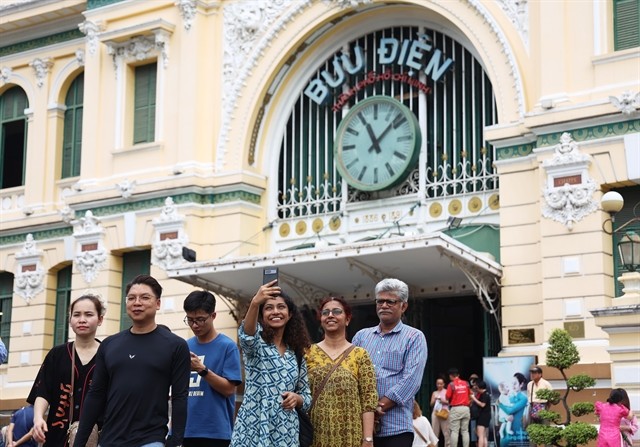 Travel
Travel
Vietnam Welcomes Record-High Number of International Visitors
Popular article
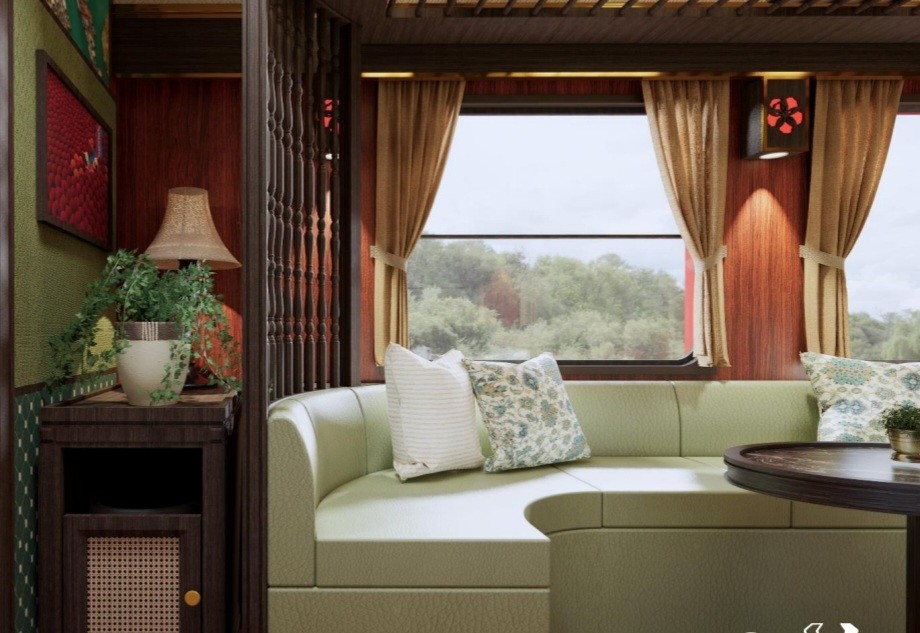 Travel
Travel
Luxury Train From Hanoi To Hai Phong To Be Launched In May
 Travel
Travel
Phong Nha Named Top Budget-Friendly Travel Destination for Spring 2025: Agoda
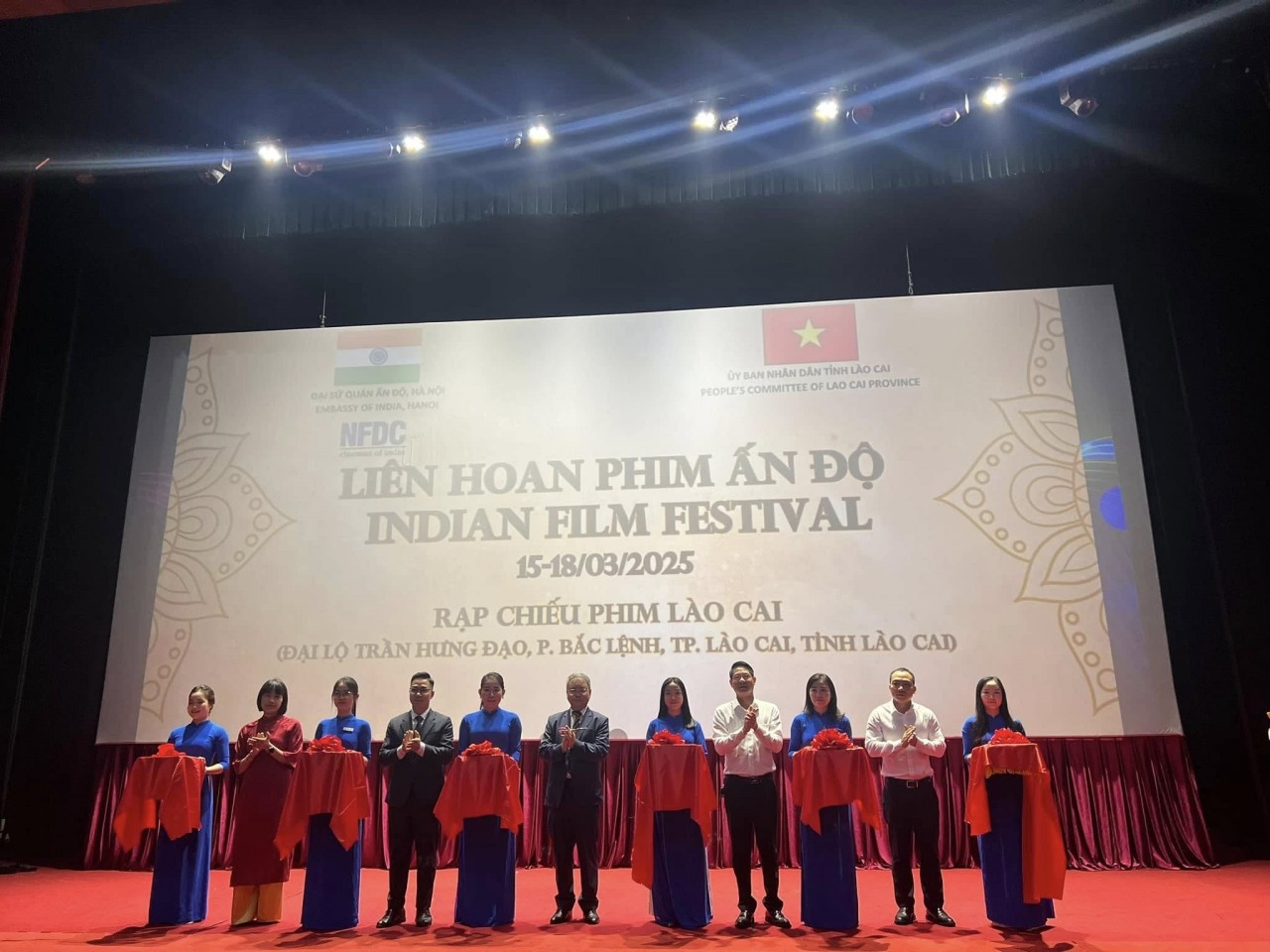 Travel
Travel
Four Indian Films Introduced to Lao Cai Audience
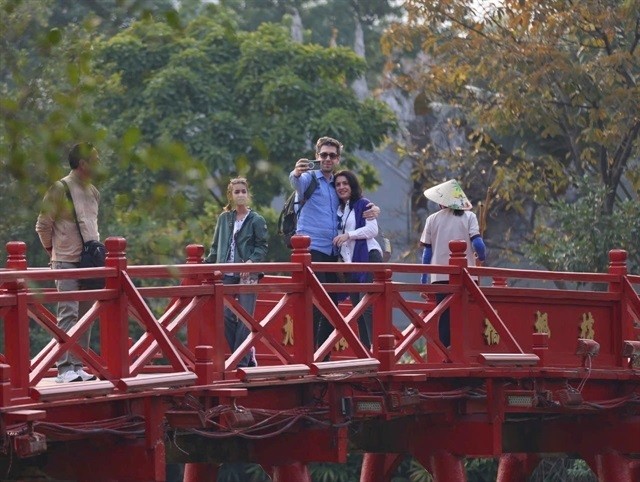 Travel
Travel



